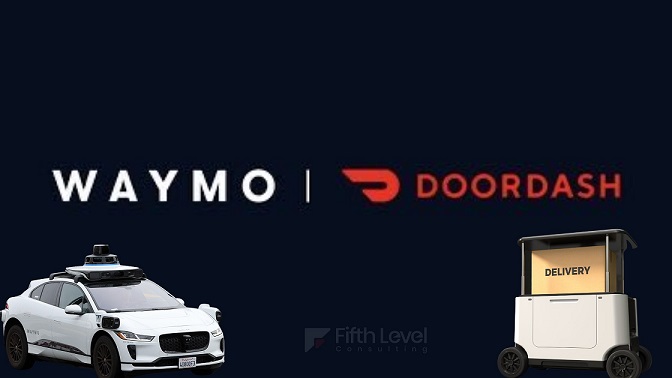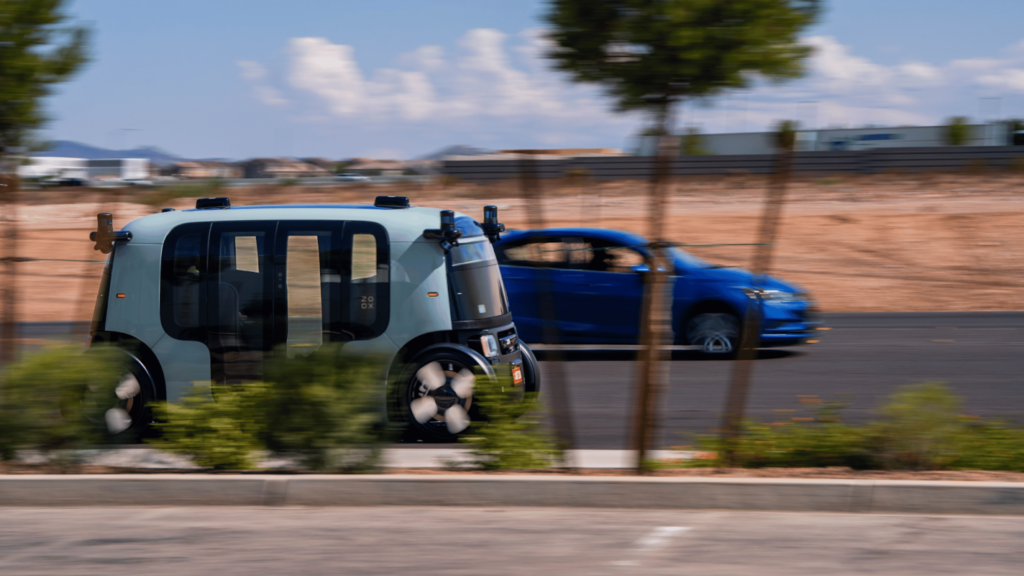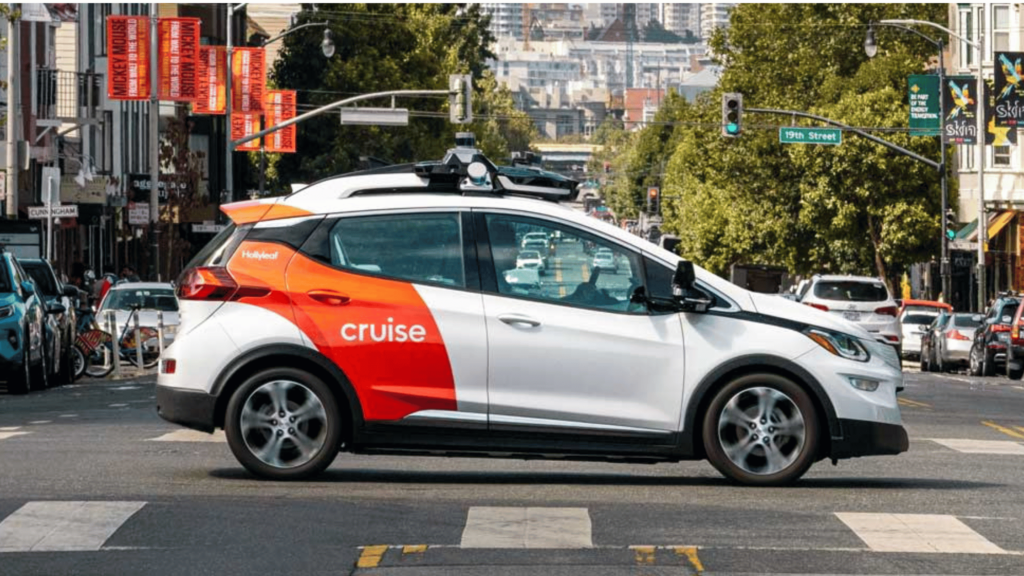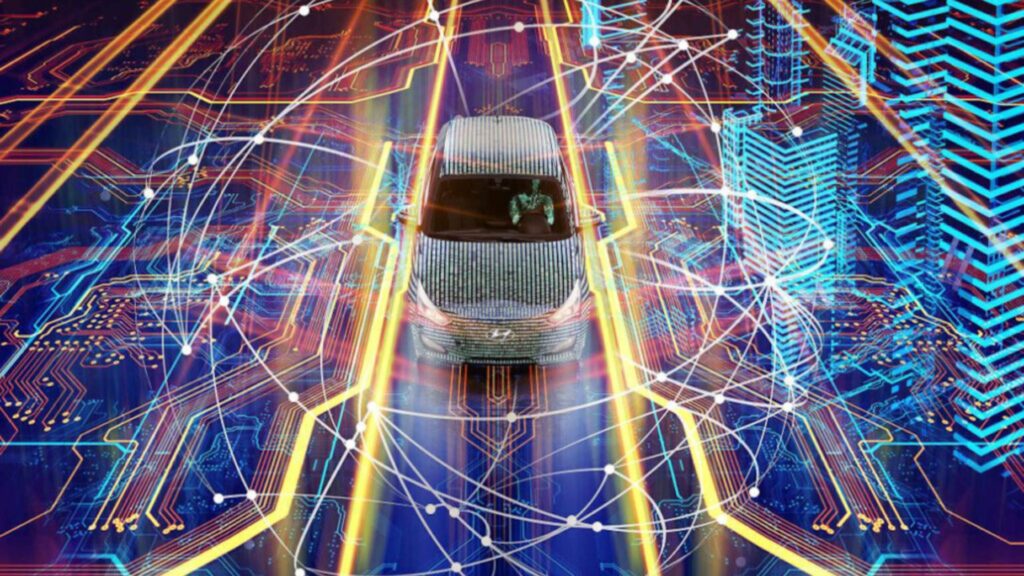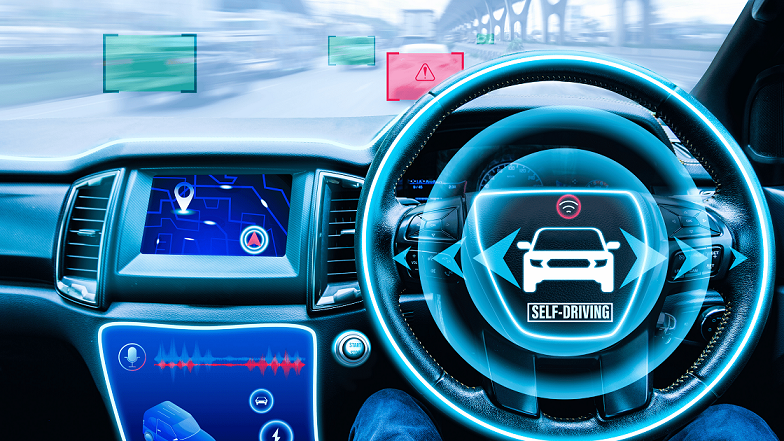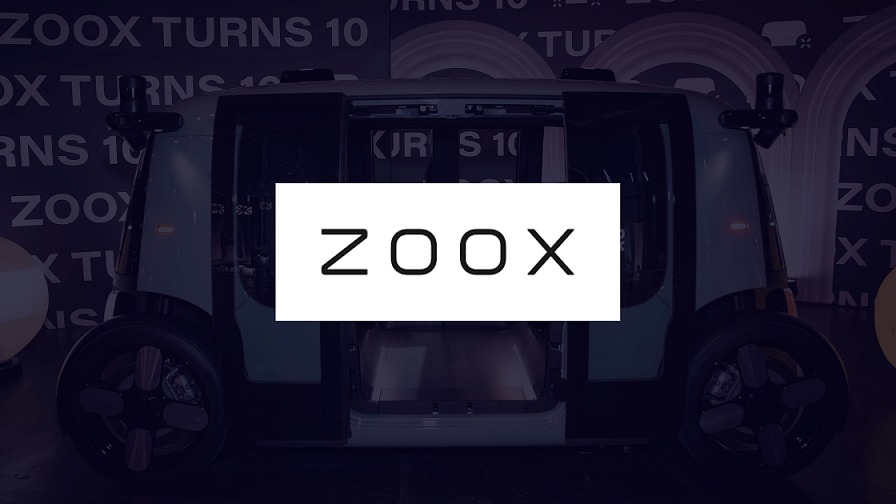- Waymo, Alphabet’s autonomous driving subsidiary, has partnered with DoorDash to launch self-driving food and grocery deliveries in Metro Phoenix, marking a significant expansion into the autonomous delivery market.
- The service integrates Waymo’s robotaxis with DoorDash’s platform, allowing customers to opt for contactless deliveries via autonomous vehicles, starting with DashMart and expanding to more merchants.
- Waymo’s autonomous vehicles have logged over 100 million miles on public roads and served more than 10 million trips, providing a strong foundation for safe and reliable deliveries.
- This move positions Waymo as a formidable player in autonomous food delivery, potentially disrupting smaller robotics companies focused on sidewalk bots and campus deployments.
OCTOBER, 2025: Waymo and DoorDash announced a new partnership to launch autonomous delivery service in Metro Phoenix, with testing already underway and broader commercial operations planned for later in the year.
Waymo is a key player in autonomous vehicle technology. DoorDash is a giant in the food delivery ecosystem. The initiative allows customers to have their restaurant orders and groceries delivered by a fully driverless Waymo vehicle.
DoorDash consumers in the area may be matched with a fully autonomous Waymo vehicle for deliveries from participating merchants using DoorDash’s Autonomous Delivery Platform. This is the system that helps orchestrate different types of delivery methods together at scale, whether that’s Dashers, robots, drones, or Waymo. The service will begin with deliveries from DashMart, DoorDash’s owned and operated convenience, grocery, and retail store that also powers DashMart Fulfillment Services, with plans to expand over time.
Nicole Gavel, Head of Business Development and Strategic Partnerships at Waymo, said of the partnership:
“We are excited to make everyday errands easier with the Waymo Driver, offering the added peace of mind that comes with our safe and reliable technology. Through our partnership with DoorDash, we leverage our proven delivery experience to provide customers with a seamless, contact-free way to get items they need, whether it’s groceries or a quick bite.”
Waymo has logged over 100 million autonomous miles on public roads and served over 10 million trips, establishing itself as the undisputed leader in autonomous ride-hailing. The company handles over 250,000 paid trips per week across five major cities, establishing operational maturity that few competitors can match.
Through June 2025, Waymo has driven 96 million rider-only miles without a human driver, and has been involved in 84% fewer crashes with airbag deployment, 73% fewer injury-causing crashes, and 48% fewer police-reported crashes compared to human drivers. According to a Swiss Re study, Waymo vehicles saw 88% fewer property damage claims and 92% fewer injury claims compared to the average human driver.
It is important to note that Waymo had previously experimented with logistics and delivery pilots, then focused back on robotaxis. The partnership with DoorDash is a bold statement of intent—a strategy to return and conquer.
Also Read:
6 Best Self-Driving Cars in the US (2025)
Top 5 Autonomous Trucking Companies in the US (2025)
How to Get a Waymo Delivery on DoorDash
Getting a self-driving delivery from Waymo via DoorDash is straightforward for eligible users in Metro Phoenix. Here’s how it works:
- Opt-In During Checkout: When placing an order on the DoorDash app from participating merchants like DashMart, select the option for autonomous vehicle delivery if available.
- Order Matching: The system may automatically match your order with a Waymo robotaxi based on location, order size, and availability within the 315-square-mile Phoenix service area.
- Track the Delivery: Use the DoorDash app to monitor the Waymo vehicle’s real-time progress, similar to tracking a human dasher.
- Retrieve Your Order: Upon arrival at your location, unlock the vehicle’s trunk through the app to access your items—no human interaction required for a contactless experience.
- Eligibility Check: Ensure you’re in Metro Phoenix and have the latest DoorDash app; DashPass membership isn’t required but offers additional perks like the Waymo ride promotion.

DashPass offers exclusive deals, member-only benefits, and $0 delivery fees and reduced service fees on eligible orders from thousands of restaurants, grocery stores, and retailers. On average, DashPass members save $5 per eligible order and have collectively saved more than $10 billion globally since the program launched in 2018.
*On weekday rides booked between 2 a.m. and 2 p.m. Terms apply.
The Companies Facing a Waymo-Sized Threat
While Waymo’s expansion into self-driving delivery represents progress for consumers, it poses a significant competitive challenge for relatively smaller autonomous delivery companies that have been building their businesses in this space.
Serve Robotics

Serve Robotics has been making steady progress in autonomous sidewalk delivery. The company operates in cities including Los Angeles, Miami, Dallas, Chicago, and Atlanta, where it has completed over 100,000 successful deliveries from over 2,500 restaurants.
The company recently secured a major partnership with DoorDash, which seemed like a significant victory.
Serve was spun off from Uber in 2021 as an independent company and has completed tens of thousands of deliveries for enterprise partners such as Uber Eats and 7-Eleven. The company has been working to expand its reach, but Waymo’s entry will certainly change the competitive landscape.
Serve’s robots operate on sidewalks, limiting their range and capacity compared to Waymo’s full-sized vehicles. While Serve excels at quick, nearby deliveries, Waymo can handle larger orders across greater distances—potentially capturing the higher-value delivery segments.
It’s a no-brainer—with a well-funded competitor like Waymo, Serve will need to differentiate itself quickly.
AVRide: The Campus Delivery Specialist

AVRide has carved out an impressive niche in campus delivery, establishing the largest robot deployment on a U.S. campus. At Ohio State University, AVRide operates 112 robots that completed over 80,000 deliveries in one semester, averaging around 1,300 deliveries and 10,000+ crossings on a typical day.
AVRide and Grubhub brought autonomous robot delivery to colleges across the country, with 100 robots currently active on The Ohio State University’s campus, designed to handle high volumes of deliveries. The company has also partnered with Uber Eats, creating multiple revenue streams within the campus delivery market.
Grubhub and Avride completed over 100,000 autonomous deliveries at The Ohio State University’s Columbus campus, making it the largest single-site robot food delivery operation in the U.S.
However, campus environments are contained ecosystems with limited geographic scope. Waymos can penetrate campuses too. In fact, Waymo vehicles can operate across entire metropolitan areas, potentially offering delivery services that extend beyond campus boundaries. This can pose a serious threat to AVRide, as they hope to grow and scale.
Starship Technologies

If any company should be concerned about Waymo’s expansion into food and groceries delivery, it’s Starship Technologies. Founded in 2014 by Skype co-founders, Starship has been the undisputed leader in autonomous sidewalk delivery.
The company’s track record is formidable. Starship Technologies announced in April 2025 that its systems had completed more than 8 million autonomous deliveries and traversed over 10 million miles globally. Starship operates a fleet of over 2,000 autonomous robots across 150+ locations in six countries, with robots operating at Level 4 autonomy and crossing 125,000 roads and driveways per day.
Starship has established partnerships with major platforms. In March 2020, Starship became the first robot delivery service to operate in a British town center with the rollout of its service in Central Milton Keynes, and by November 2020, claimed that Milton Keynes had the ‘world’s largest autonomous robot fleet’.
Yet, Waymo brings bullish competition. In addition to having Alphabet, one of the world’s most valuable corporations as their parent company, they have the experience operating full-sized autonomous vehicles. While Starship’s robots are perfect for small orders and short distances, Waymo can handle grocery runs, large restaurant orders, and deliveries across sprawling metropolitan areas.
The Market Dynamics and Competitive Landscape
| Company | Total Deliveries | Fleet Size | Geographic Reach | Key Partnerships | Notable Achievements |
| Waymo | 10M+ rides | 700+ vehicles | 5 U.S. cities (720+ sq miles) | DoorDash, Uber | 100M+ autonomous miles, over 250K weekly paid trips |
| Starship Technologies | 8M+ deliveries | 2,000+ robots | 150+ locations, 6 countries | Uber Eats, Co-op, Sodexo | 10M+ miles traveled, Level 4 autonomy |
| Serve Robotics | 100K+ deliveries | Undisclosed | Los Angeles, Miami, Dallas, Chicago, Atlanta | DoorDash, Uber Eats, 7-Eleven | Partnership with major delivery platforms |
| AVRide | 100K+ at OSU alone | 112 robots (at OSU) | Ohio State University, expanding | Grubhub, Uber Eats | Largest U.S. campus deployment |
The market opportunity is substantial. According to Transforma Insights, the global market for delivery robots could expand at a 64% compound annual growth rate between 2022 and 2032, reaching 4.7 million active robots by the end of the decade.
Waymo could potentially capture a significant share of that market, knocking off established players.
You May Also Like:
Top 9 Self-Driving Delivery Companies in the US (2025) – By Autonomous Miles Covered
Top 7 Autonomous Drone Delivery Companies in the US (2025)
Waymo’s 100 Million Autonomous Miles: A Timeline of How They Got Here

I’m Dr. Brandial Bright, also known as the AVangelist. As a dedicated and passionate researcher in autonomous and electric vehicles (AVs and EVs), my mission is to educate and raise awareness within the automotive industry. As the Founder and Managing Partner of Fifth Level Consulting, I promote the adoption and innovation of advanced vehicle technologies through speaking engagements, consulting, and research as we progress to level 5 fully autonomous vehicles.

